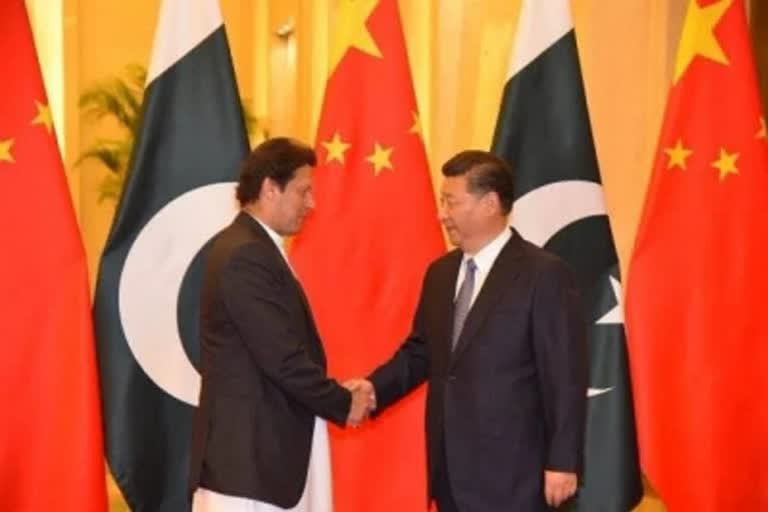Hyderabad: Pakistan's PM Imran Khan's visit to Beijing on the eve of Winter Olympics 2022 may seem to be merely a courtesy visit on the face of it, however, it projects Islamabad's heavy dependence on Beijing for its dwindling economy, especially at a time when the west has abandoned Islamabad, after the shocking takeover of Afghanistan by the Taliban in August last year.
At the epitome of Imran Khan’s visit to Beijing is Islamabad’s weak economy further hit by the COVID-19 pandemic. And for PM Khan, this crisis could only be resolved only if Beijing continues to support them, both financially and strategically. While the visit would lay out the future trajectory of Islamabad's economic policy, Indian experts believe that Beijing will be unlikely to fetch huge amounts of capital in Islamabad following the security threats posed by the insurgency in Pakistan in the Balochistan region and the surge in TTP attacks.
In an exclusive conversation with ETV Bharat, Professor Harsh V Pant, Director, Studies and Head of the Strategic Studies Programme at Observer Research Foundation, New Delhi, says, "If China had a mind of offering any kind of substantive assistance to Pakistan, they would’ve already done it. It is the kind of security threats posed on the Chinese personnel in Pakistan who have had the worst experience in the region."
"After all, China is not America. America in the past funded enormous amounts of money to Pakistan without asking any question but China always demands returns. So, in this context, China is not going to funnel loans to Pakistan at a time when China’s economy itself is facing a slowdown," he added.
Beijing and Islamabad on Friday signed the much-needed 'Framework Agreement on Industrial Cooperation' as part of the China Pakistan Economic Corridor (CPEC) launched in 2015. The stated agreement followed PM Khan's meeting with He Lifeng, Chairman of China's National Development and Reform Commission (NDRC). This agreement is being called phase two of CPEC which is likely to deepen the bilateral relations between the two states, who share a common enemy at their respective borders.
The agreement aims to boost Chinese investments in Pakistan as well as transferring Chinese industrial capacity. Along with this, key agreements have also been signed in the domain of agriculture. Furthermore, with this trip PM Khan would also hope to get a $3 billion loan from China to help stabilise the country's declining foreign exchange reserves.
